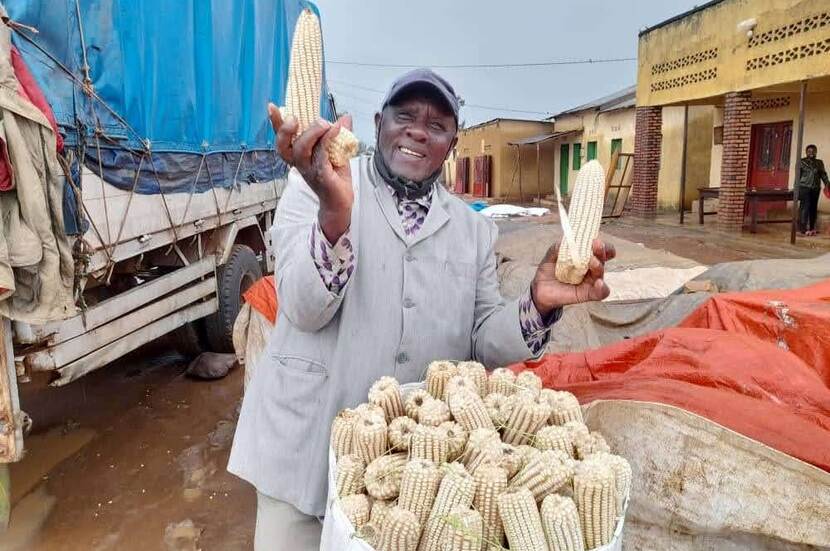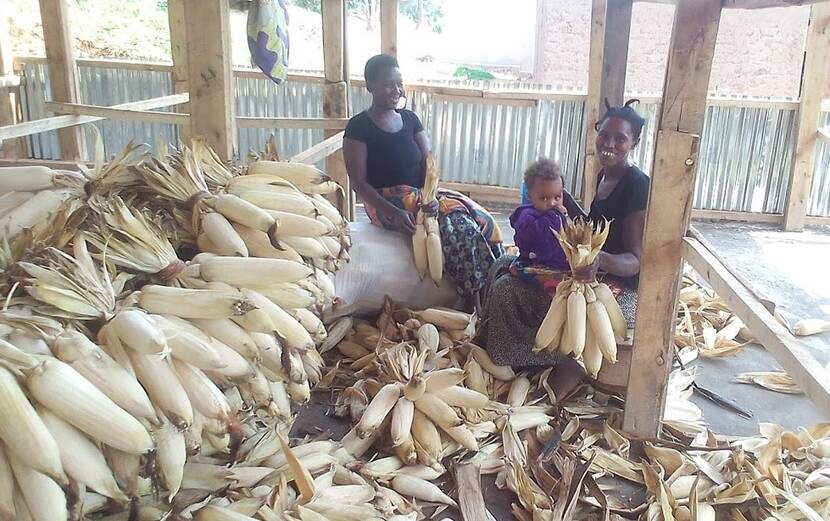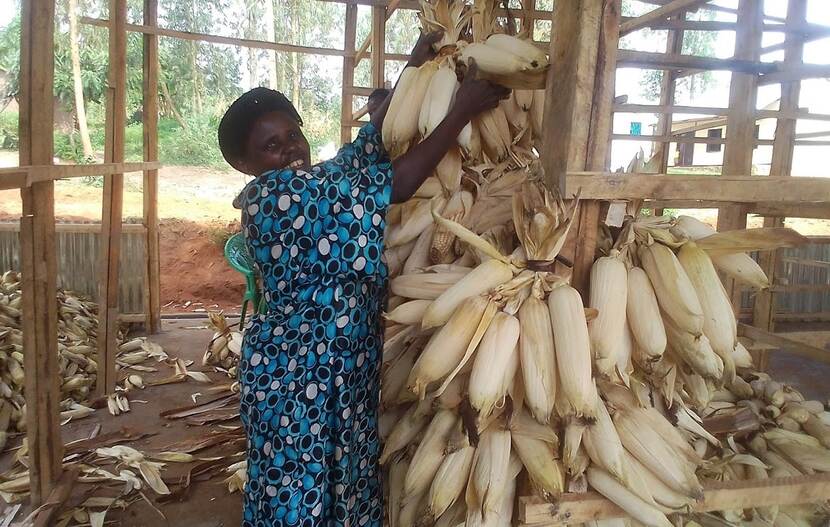Smart partnership fights malnutrition in Rwanda
How to make our food systems healthier, more sustainable and more equitable: this is the main question to be explored at the United Nations Food Systems Summit in September. The summit is focused on achievement of Sustainable Development Goal (SDG) 2 – zero hunger by 2030. At the Pre-Summit in Rome, DSM will tell us how it is working with Rwandan maize growers, government authorities and NGOs to fight malnutrition.
At a side event on Wednesday 28 July DSM will talk about its involvement in a public-private partnership aimed at tackling malnutrition among Rwandan children and women, while improving maize growers’ income and reducing food waste. The side event is part of the UN’s three-day Pre-Summit on food systems taking place in Rome this week. During this hybrid event, government authorities, businesses, non-governmental organisations and many other parties will talk about how to make our food systems healthier, more sustainable and more equitable.
End hunger
We can only change the way we produce and consume food if all the players in the system work together. The Food Systems Summit is a key milestone for achieving SDG 2 – zero hunger by 2030. This is urgent, because hunger and obesity are on the increase and the pressure of food production on the global environment has become untenable. The Dutch government contributes to the worldwide effort by working with the private sector and knowledge institutions.
Prevent malnutrition
DSM is best known as a manufacturer of chemicals, but nowadays its main focus is on human and animal nutrition. ‘We combine technology with scientific insights,’ says Jacobine Das Gupta, corporate sustainability manager at DSM. ‘We focus on social issues that are also good for business. DSM wants to develop and market interesting products, for instance to prevent malnutrition. But we will only reach the right end users if we work with government authorities, NGOs and other parties.’
Produce milk with fewer greenhouse gas emissions
DSM is working on innovations in several areas relating to sustainable food systems. ‘Though an increasing number of plant-based alternatives are appearing on the market, people still drink milk,’ says Jacobine. ‘So it’s important that cows can produce milk while emitting fewer greenhouse gases.’ The company developed Bovaer, a cattle feed additive that reduces emissions of methane, a very strong greenhouse gas, by up to 30%. Bovaer is now being tested at farms all over the world, and DSM has applied to the European Food Safety Authority for authorisation.
Prevent stunted growth
‘We’re also trying to think up smart solutions to prevent food waste, since we throw away a third of the food we produce,’ Jacobine goes on to say. ‘DSM focuses on vulnerable groups like children and women. Some people living in remote villages cannot get enough fruit and vegetables. Their diet mainly comprises rice or maize porridge. Children’s nutrient intake is too low, stunting their growth and mental development.’ According to Jacobine this can be prevented with the right food – fortified rice, for example, or maize flour with added vitamins and minerals.
Ensure accessible, affordable food
In 2017 DSM started working with World Vision Rwanda, the Sight and Life Foundation thinktank and Africa Improved Foods to fight malnutrition in rural communities in Rwanda. ‘We wanted to know how to tackle this problem sustainably and to scale, while taking account of climate change and ensuring that farmers could make a living,’ says Florentine Oberman, partnerships manager at DSM, indicating the scale of the challenge. ‘At the same time, healthy food has to be both accessible and affordable.’
In Rwanda, DSM works with smallholders who have not yet organised. ‘The farmers were used to stripping the kernels from the cob and then leaving them to dry,’ says Florentine. ‘But the air is extremely humid, so that much of the harvest was lost: the maize went mouldy before it had time to dry.’ The partners proposed that the farmers should organise, dry the cobs whole and then sell them.
Nutritious maize porridge
The partners also ensured a stable market, by enabling the farmers to sell their maize to Africa Improved Foods, the joint venture between the Rwandan government and shareholders including DSM and FMO, the Dutch development bank. Africa Improved Foods mills the maize and adds vitamins to the flour, creating a basis for nutritious maize porridge. This product is then sold to the World Food Programme, the Rwandan government and directly to consumers.
Make a better living
It all sounds simple, but it was by no means easy to get 7,000 maize farmers to change their ways. ‘As partners, we had to persuade the farmers to take part in the programme,’ says Florentine. ‘They needed to change their mindset; at first, they didn’t see the point.’ Now they are seeing results. ‘Maize growers can make a better living, food security has improved and more children are growing at a normal rate,’ says Jacobine. ‘More than 1.6 million children in Africa are receiving healthy, locally sourced and produced food products from Africa Improved Foods.’


